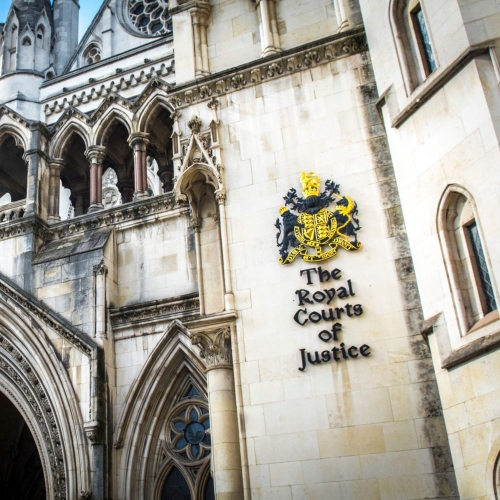Queen’s Speech 2021 – Property Round-Up
Whilst the speech is always a useful insight into the Government’s intentions, the legislation will be debated in Parliament before it becomes law (which is not always the case). There are a number of areas which those in the property sector should be keeping a keen eye on…
Telecoms
The telecoms sector will see further change with the introduction of the Product Security and Telecommunications Infrastructure Bill which, in part, will support the extension of “5G mobile coverage and gigabit capable broadband”.
The Bill will include reforms to the Electronic Communications Code to support “faster and more collaborative negotiations for the use of private and public land for telecommunications deployment, and to put the right framework in place for the use of installed apparatus”.
The Government has recently consulted on reforms to the Code. Expect ongoing debate regarding the balance of landowner and operator interests in facilitating this expansion. The Government is aiming for most of the UK population to have 5G coverage by 2027.
Planning
The Planning Bill aims to create a “simpler, faster and more modern planning system” ensuring that homes/infrastructure can be built more easily and more quickly across England.
The Government’s aim is to move to a more efficient digital service and introduce new procedures which aim to remove delays from the system. There is a clear emphasis on the alleged benefits of being untangled from EU law with talk of using “post-Brexit freedoms” to enhance various frameworks.
The Government wishes to see a greater number of homes built with smaller housebuilders contributing to a greater percentage of the total figures. Increased public engagement is another aim of the Bill.
Ground Rents and Leases
The Leasehold Reform (Ground Rents) Bill follows high-profile discussions on leasehold reform which have been ever-present in the property press over recent years. The CMA launched an investigation into potential mis-selling in the leasehold sector which is ongoing.
The Bill aims to ensure that leaseholders cannot be charged ground rents for “no tangible service”, with only a “literal peppercorn” being payable. Anything in excess could bring with it civil penalties for landlords of up to £5,000.00. The Bill is peppered with potential issues that will need to be addressed in the final legislation, not least the rather obvious flaw of a maximum civil penalty of £5,000.00.
Fire Safety
The Building Safety Bill has been introduced as part of ongoing attempts to tackle well-publicised fire safety issues which came further into public consciousness following the Grenfell tragedy.
Its aim is to “strengthen the regulatory system for building safety” and introduce “rigorous safety standards for construction products and a clearer path to redress for homeowners”. A new Building Safety Regulator will be established, and the recommendations of the Independent Review of Building Regulations and Fire Safety will be implemented.
The Bill is not without controversy and only covers buildings higher than 18 metres (or seven storeys). Political debate over the scope and effect of the eventual legislation is likely to be a regular news feature. We recently covered the law relating to buildings under 18 metres here, and the shortcomings of the Fire Safety Act 2021 here.
The Environment
The Environment Bill is not primarily property legislation, but its provisions will almost certainly affect bricks and mortar as it seeks to ensure there is a framework for legally binding environmental targets.
A new, independent body will be established which will hold all public authorities to account on environmental law. Those targets include limiting emissions, restoring habitats and using resources efficiently. It is easy to see how this legislation might affect a whole raft of property interests, from housing developments to energy-efficient office buildings to public land. It is also likely to intersect with other areas of property law – most notably planning, where a “biodiversity net gain” will be mandated to ensure new houses “are not built at the expense of nature”.
Private Rented Sector
The Renters’ Reform Bill did not make it into the Speech, though there was a passing reference to “enhancing the rights of those who rent”. The Government has recently confirmed its commitment to the Bill “once the urgencies of responding to the pandemic have passed”.
The Bill is expected to reform residential landlord and tenant law by abolishing Section 21 “no fault” evictions and improving security for tenants. Eviction grounds may be strengthened where landlords have “valid cause”.
The absence of the Bill in the speech will be of concern to those hoping for more rapid reform. Instead, the Government has confirmed a “consultation response” will be published, so legislation may still be some way off.
We will continue to keep a close eye on all developments in the coming year, which may yet be a year of fundamental change in the world of property law.
LONDON
One Pancras Square
King's Cross
London
N1C 4AG
Phone: +44 (0) 207 846 4146
E-Mail: hello@hagenwolf.co.uk
Web: www.hagenwolf.co.uk
LEEDS
One Park Row
Leeds,
West Yorkshire
LS1 5AB
Phone: +44 (0) 113 856 0446
E-Mail: hello@hagenwolf.co.uk
Web: www.hagenwolf.co.uk
Hägen Wolf Limited (trading as Hägen Wolf) are solicitors of England and Wales authorised and regulated by the Solicitors Regulation Authority SRA Number 659328. Details of the Solicitors Code of Conduct can be found at www.sra.org.uk Hägen Wolf Limited is registered at Companies House No. 10830060. Registered Office: One Park Row, Leeds, LS1 5HN. We use the word 'partner' to refer to a shareowner or director of the company, or an employee or consultant who is a lawyer with equivalent standing and qualifications. *(by appointment only – we do not accept service at this address)
Contact us
Give us a call on 0330 320 1440 or send us an email at hello@hagenwolf.co.uk or fill in the boxes below and pop over a quick message and a member of the team will get back to you as soon as they're free.




